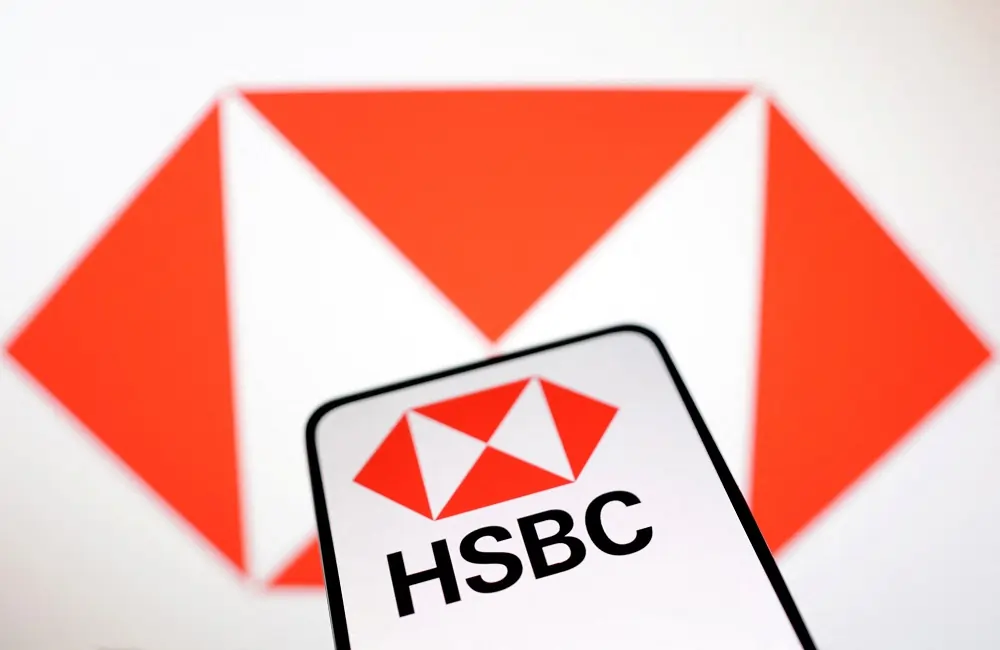
Royal Bank of Canada gets nod for $10 billion purchase of HSBC unit
By Nivedita Balu
(Reuters) – Canada on Thursday approved Royal Bank of Canada’s C$13.5 billion dollars ($10.2 billion) acquisition of HSBC’s domestic unit, in a deal that would further tighten the country’s top lenders’ grip on the market.
The deal is conditional on RBC establishing a global banking hub in Vancouver, waiving fees associated with the transfer of mortgages from HSBC to RBC and protecting HSBC’s Canadian workforce.
RBC will also have to increase its client operations center workforce in Winnipeg by 10%, provide $7 billion in financing for affordable housing construction across Canada and continue banking services at a minimum of 33 HSBC branches.
The Vancouver hub would support more than 1,000 jobs while creating about 440 net new jobs in British Columbia, Minister of Finance Chrystia Freeland said.
HSBC, in an exchange filing, said it is working with RBC to progress the deal which it expects to close in the first quarter of 2024. It said it is considering a special dividend of 21 cents a share from the proceeds in the first half of 2024.
RBC said the acquisition, which merges Canada’s biggest and seventh-biggest lenders, will boost its domestic business as well as its position on the global stage.
“HSBC has capabilities to transact in different currencies that, right now, we do not have and we will bring on as a result of the transaction. They had international money movement capabilities that we’re really looking forward to,” Personal & Commercial Banking Group Head Neil McLaughlin said in an interview.
“It is very much part of where we see the opportunity.”
McLaughlin said the finance ministry’s conditions were nothing “that have really taken us off the path.”
The finance ministry said the deal had also been approved by federal banking regulator, the Office of the Superintendent of Financial Institutions.
The Competition Bureau approved the deal in September saying it was unlikely to hurt competition but noted that the deal would “result in a loss of rivalry.”
Conservative Party of Canada leader Pierre Poilievre, who had campaigned to reject the deal, on Thursday said the government “should have supported competition in banking and mortgage lending by blocking the merger.”
“Now all Canadians will pay the price,” he said on X.
McLaughlin said Canada’s market was still “very competitive” and RBC was committed to working with HSBC’s clients as they transition.
The merger, RBC’s biggest, also overcame opposition from environment and anti-monopoly groups as well as conservatives who lamented the increasing concentration of the industry and the possibility of higher fees for consumers.
HSBC, which once advertised itself as the “world’s local bank,” has more than 130 branches in Canada with 780,000 customers. Its Canadian exit came as it shrink its global footprint to focus on Asia.
“The reality is that HSBC Canada only has a market share of around 2%, and we cannot prioritize the investment needed to grow it further,” HSBC Group Chief Executive Noel Quinn said in a statement.
Deals of this size in the banking sector have not been attempted in Canada since the early 1990s, when RBC’s bid for Bank of Montreal was blocked by regulators.
More recently, banks looking for growth at home and south of the border have spent billions on acquisitions. BMO acquired U.S. lender Bank of the West, while TD Bank offered to buy U.S. lender First Horizon – a deal that was later terminated.
($1 = 1.3282 Canadian dollars)
(Reporting by Jaiveer Singh Shekhawat and Nilutpal Timsina and Rishav Chatterjee in Bengaluru and Nivedita Balu in Toronto; Editing by Sonali Paul and Christopher Cushing)


